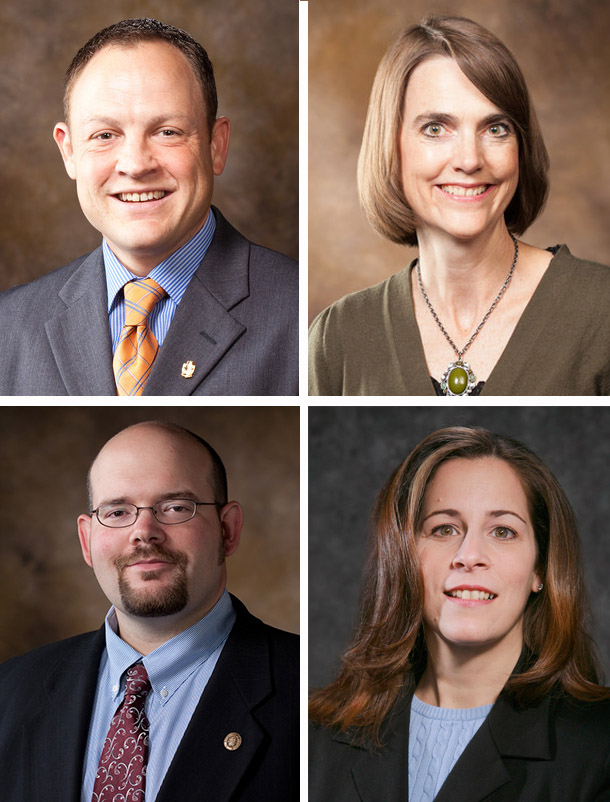A team of University of Arkansas researchers found in a national survey that, when their school leaders were open and active in implementing Common Core State Standards, teachers felt more positive about those standards.
For purposes of the survey, open leadership meant the teachers felt freedom and flexibility to express concerns and adapt their lessons and that the school administrators listened to their ideas. Active leadership meant that administrators were evaluating, promoting parent involvement, visiting classrooms and providing for collaboration in relation to the new standards.
The research by faculty and graduate students in the College of Education and Health Professions was published in Cogent Education, an open access journal. The Common Core standards adopted by 43 states represent the most significant educational change in American history, the paper argues.
Jason Endacott led the research team of U of A faculty members Chris Goering, Vicki Collett and Ronna Turner. Endacott, Goering and Collett all teach in the teacher-education programs, and Turner teaches in the educational statistics and research methods program. Graduate students Ginney Wright and Jennifer Jennings-Davis, who now teach at the U of A and the University of Arkansas at Fort Smith, respectively, also worked on the project. This is one of four articles on the research so far, giving the big picture, and Endacott is working on analysis of data from a follow-up study.
The team surveyed 7,700 teachers randomly selected from a national database provided by an education marketing company.
"When the Common Core was adopted in 2010, it was implemented in a lot of different ways in terms of speed and method by which leadership communicated with their faculty members," Endacott said. "Chris (Goering) and I started hearing different stories about how it was going into place. One story we heard was that schools were standardizing teaching practices. The idea that common standards meant common teaching, we thought, was wrong."
The survey found that, when school district leaders were more open to the desires, wants and ideas of their faculty members, teachers had higher positive perceptions of the Common Core and its implementation. In addition, when teachers believed their leaders behaved in a more open manner, the teachers also had higher positive perceptions of teaching conditions and job satisfaction and were less likely to think about leaving.
"One reason we published this research in an open access journal was the hope that, when building administrators read this, they will understand that sometimes expediency and efficiency may seem like the best way to get job done when it comes to education reform, but if they really want teachers to buy into and have positive perceptions, they need to maintain openness in the process," Endacott said. "Often, schools have to make quick decisions to get things done and put a small number of people in charge to make them happen. We hope decisions can be revisited after the initial emergency has passed, giving all stakeholders a voice."
George Denny is also listed as an author on the paper, although Denny died suddenly in the spring of 2013. The team felt strongly about continuing to "work with George," who was an educational researcher and statistician who provided data analysis for many research projects in the College of Education and Health Professions, other colleges at the U of A and at other universities.
"Chris and I primarily conduct qualitative research, focusing on open-ended questions," Endacott said. "We decided to do a quantitative survey for this because we wanted to see what factors might be involved on a larger scale. George was responsible for helping us create a good survey to determine what the initial analysis should look like. He set the course for how we could accomplish our goals of looking at these factors for teachers."
The team put the survey research on hold briefly to deal with the shock of Denny's death. Then, they recruited Turner to pick up the data analysis.
"Ronna (Turner) was able to take all of George's files, figure out what he was doing and follow his line of analysis so we could get it published," Endacott said.
Denny's collaboration was extremely helpful in developing the survey, Endacott said.
"You couldn't ask for a better partner," he said. "We would tell him what we wanted to know, and he was open-minded to what we wanted but he also brought his expertise to suggest alternative ways to find out the information. It was a big loss."
Contacts
Heidi Wells, director of communications
College of Education and Health Professions
479-575-3138,
